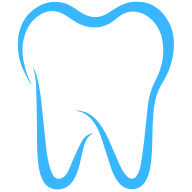Navigating the world of pediatric dentistry can be a daunting task for any parent. This blog post aims to shed light on this important topic, providing valuable tips and insights to ensure your child's oral health is in the best possible hands. From understanding the importance of early dental visits to learning about common dental issues in children, we cover it all. Let's dive in!
The Importance of Early Dental Visits
Starting dental visits early is a crucial step in ensuring your child's oral health. The American Academy of Pediatric Dentistry recommends that a child should visit the dentist by their first birthday or within six months after their first tooth erupts.
These early visits are not just about checking for cavities. They allow the dentist to assess your child's overall oral health and development. Moreover, they provide an opportunity to educate parents about proper oral hygiene practices at home.
Early dental visits also help in establishing a dental home for your child. This means your child will get comprehensive oral health care in a continuously accessible, coordinated, and family-centered way.
Remember, prevention is better than cure. Regular dental visits can help detect potential issues early, preventing them from becoming major problems down the line.
Understanding Common Dental Issues in Children
Children, like adults, can experience a variety of dental issues. Some of the most common ones include tooth decay, gum disease, and dental injuries.
Tooth decay, also known as cavities, is one of the most common chronic diseases in children. It occurs when bacteria in the mouth convert sugars from food into acid, which then attacks the tooth enamel. Regular brushing and flossing can help prevent tooth decay.
Gum disease, also known as periodontal disease, is an infection of the tissues that hold the teeth in place. It's usually caused by poor oral hygiene. Symptoms can include red, swollen gums and bad breath.
Dental injuries are also common in children, especially those involved in sports. These can range from minor chips and cracks to more serious issues like knocked-out teeth. It's important to seek immediate dental care in case of a dental injury.
The Role of Diet in Children's Oral Health
A child's diet plays a significant role in their oral health. Sugary foods and drinks can lead to tooth decay, while a balanced diet can help keep their teeth and gums healthy.
Limiting the intake of sugary foods and drinks can significantly reduce the risk of cavities. This includes not just candies and sodas, but also fruit juices and other sweetened beverages.
Instead, encourage your child to consume a balanced diet rich in fruits, vegetables, lean proteins, and whole grains. These foods not only contribute to overall health but also promote good oral health.
Drinking plenty of water is also important. Water helps wash away food particles and keeps the mouth hydrated, reducing the risk of tooth decay.
Establishing Good Oral Hygiene Habits
Establishing good oral hygiene habits from an early age is key to maintaining your child's oral health. This includes regular brushing and flossing, as well as regular dental check-ups.
Teach your child to brush their teeth twice a day, once in the morning and once before bed. Use a soft-bristled toothbrush and a pea-sized amount of fluoride toothpaste. Make sure they brush all surfaces of their teeth, including the back teeth and the gum line.
Flossing should also be a part of your child's daily oral hygiene routine. It helps remove plaque and food particles from between the teeth and under the gum line, where the toothbrush can't reach.
Regular dental check-ups are also crucial. They allow the dentist to monitor your child's oral health and development, provide professional cleanings, and address any issues early.
Dealing with Dental Anxiety in Children
Dental anxiety is common in children. It can be caused by a variety of factors, including fear of the unknown, past negative experiences, or stories from peers.
As a parent, you can help alleviate your child's dental anxiety. Start by choosing a pediatric dentist who is experienced in dealing with anxious children. They can use techniques like distraction, positive reinforcement, and even sedation to make the dental visit more comfortable for your child.
Prepare your child for the dental visit by explaining what will happen in simple, non-threatening terms. Avoid using words like "pain" or "shot". Instead, let them know that the dentist is there to help keep their teeth strong and healthy.
Also, try to make the dental visit a positive experience. Praise your child for their bravery, and consider rewarding them with a small, non-food treat after the visit.
The Role of Fluoride in Children's Oral Health
Fluoride plays a vital role in maintaining your child's oral health. It strengthens the tooth enamel, making it more resistant to acid attacks and thus reducing the risk of cavities.
Fluoride can be obtained from various sources, including fluoridated water, fluoride toothpaste, and fluoride supplements.
It's important to use fluoride products appropriately to avoid fluorosis, a condition that can cause discoloration of the teeth. For instance, children under the age of three should use a smear of fluoride toothpaste, while those aged three to six should use a pea-sized amount.
Your child's dentist can provide further guidance on the appropriate use of fluoride products.
Wrapping Up: Ensuring Your Child's Oral Health
Ensuring your child's oral health involves a combination of regular dental visits, good oral hygiene practices, a balanced diet, and the appropriate use of fluoride. As a parent, you play a crucial role in establishing these habits and setting the foundation for your child's lifelong oral health. Remember, a healthy smile is a priceless gift you can give your child.

